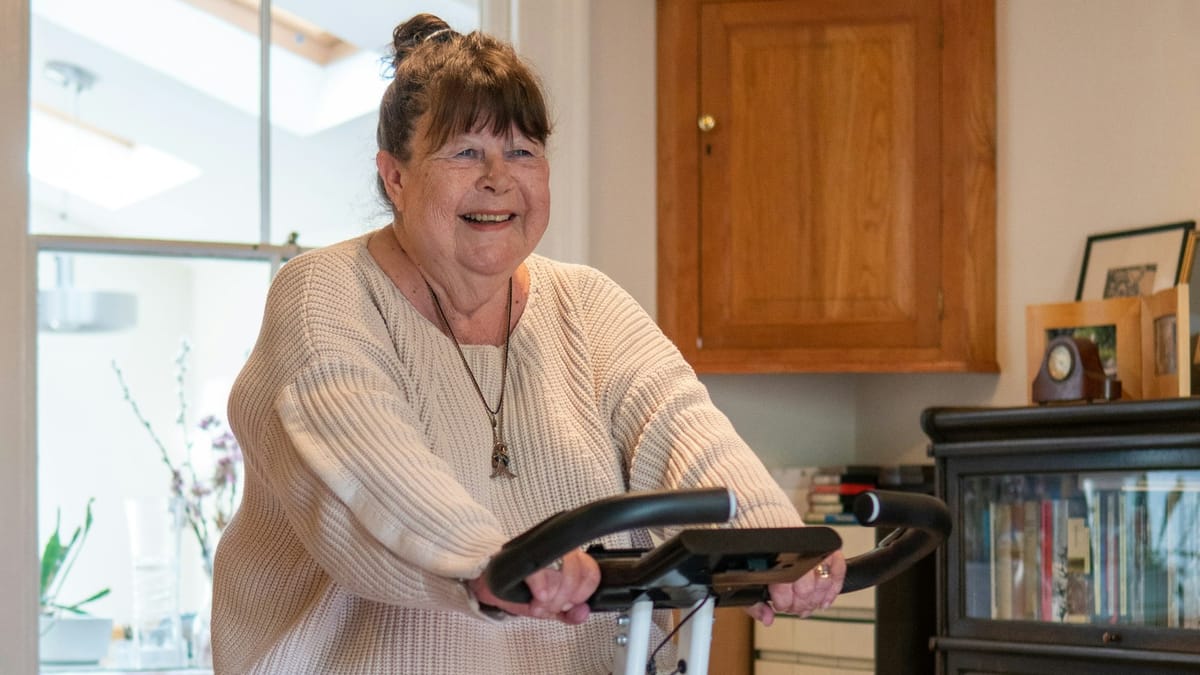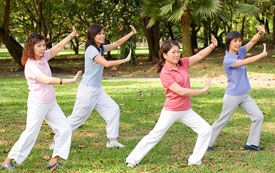The Horrible Truth About Exercise for Seniors
Learn about the many benefits of exercise for seniors, including reducing risks of osteoporosis and dementia, improving heart health, and promoting overall well-being.

Exercise for Seniors Want to Avoid Symptoms of Dementia
In addition to reducing risks of osteoporosis, symptoms of dementia and high cholesterol, the benefits of exercise for seniors also includes:
- contributing to heart health and overall cardiovascular functioning
- keeping joints flexible
- enhancing quality of sleep
- reducing blood pressure
- improving mood and cognition
- releasing natural endorphins
- helping in maintaining weight
- promoting immune system health
Never Too Old
The idea that seniors older than 65-70 years were too frail to participate in exercising is now extremely outdated. Additionally, study after study has proven that age is statistically insignificant when compared to the benefits of regular physical activity for seniors.
It is true that as the body ages, repair of muscles, tendons and other slightly damaged areas take longer to repair because of reduced cell count and activity. However, seniors can safely participate in moderate exercise with little risk to their existing health. In fact, even if senior citizens suffer from diabetes, minor heart disorders or blood pressure issues, they will benefit from a doctor-advised regiment of exercise for seniors specifically tailored to accommodate their health conditions.
Diet and Exercise Benefits in Dementia Prevention
When used in conjunction with a low-calorie diet of fruits, vegetables and whole grains, exercise may even potentially reduce the risk for certain cancers, dementia and Alzheimer's disease. Relying on information derived from clinical and research studies, some scientists have concluded that continuing to exercise well into your golden years may even increase your lifespan by five to ten years.
Suggested Exercise for Seniors
Of course, senior activities take into account the general health status and physical capability of any senior engaging in these activities:
Walking
By walking slighter faster than you normally do, you will beneficially by an increased heart rate, which strengthens heart muscles and increases oxygen to all parts of the body.
Leg stretching/extensions
Performing toe touches and leg stretching exercises promote knee and ankle tendons that help with keeping joints lubricated and flexible.
Lifting light weights
Done two or three times a week as a muscle-enhancing exercise for seniors (alternating days of rest) improves muscle tone and endurance.
Using a cross-trainer
Excellent method to improve all-around health but be careful not to overdo it. Cross-trainers make it feel like you aren't really exercising but later on, your muscles may be intensely chastising you for it.
Light jogging or "power-walking
Benefits those who need to lose weight and reduce blood pressure, as well as promotes endorphin release in the brain.
Swimming
As one of the best bits of retirement advice and activities in which senior citizens can participate, swimming and water aerobics is relaxing, safe and allows bodily movement without the effort required outside the buoyancy of water.
Injury potential is minimal when swimming in an indoor pool and muscle soreness is fairly negligible several hours after exercising in water. In addition, the body moves differently when immersed in water than when it is engaged in walking, toe touches or leg stretches. This means those often neglected muscles are exercised while swimming or performing water aerobics.
More Exercise for Seniors Want to Avoid Symptoms of Dementia ...
Benefits of this exercise for seniors include:
- improves balance
- controls weight and appetite
- alleviates feelings of anxiety and stress
- reduces risk of osteoporosis
- improves cardiovascular functioning
- improves flexibility
- increases muscle strength
- eases muscle tension
Precautionary Measures

No matter what your health condition or age, precautions should be taken before engaging in exercise routines. Suggested preventative measures are:
- Getting a physical examination from your physician;
- Warming up muscles and joints prior to exercising to prevent injuries
- Drink plenty of water while exercising;
- When weight-lifting, don't try lifting too much--repetitively lifting small weights will do more for your body than lifting heavy weights;
- Wear loose, light clothing;
- At the first indication of distress (trouble breathing, chest pains) stop exercising.
People are living longer than ever today due to advances in medical technology, eating healthier foods and taking advantage of the benefits of exercise for seniors. It is never too late to begin your own program of exercising and feeling better than ever during your senior years.

Our Resources section can help you find the information and tools that you need. We have courses, videos, checklists, guidebooks, cheat sheets, how-to guides and more.
You can get started by clicking on the link below. We know that taking care of a loved one is hard work, but with our help you can get the support that you need.
Click here to go to Resources Section now!
More articles in our Activities For Seniors Series
Aging and Exercise
Brain Fitness
Oil Painting Technique
Art Lesson Plans and Pastels
Growing Bonsai Tree
Gifts for seniors




